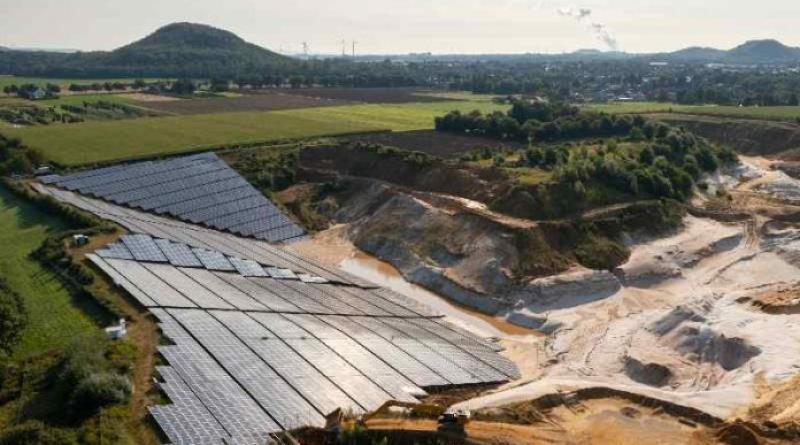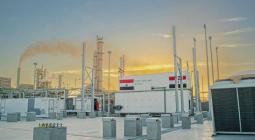Egypt’s largest modern gold mine sets its sights on solar

Gold mining company Centamin is in the final stages of commissioning a solar plant at its Sukari gold mine in Egypt. Not only does this reduce operating costs but also greenhouse gas emissions.
Sukari is Egypt’s largest and first modern gold mine and one of the world’s largest producing mines. Since early September 2022, the solar plant has consistently delivered 36MWDC (nameplate capacity), converting to 30MW of solar power.
The switch to this renewable energy source has reduced exposure to volatile fuel pricing, with commissioning saving up to 70,000 litres of diesel per day and averaging a reduction in diesel consumption of 22 million litres per annum. This also equates to a potential $20 million annual cost savings at current diesel prices.
Furthermore, the solar plant is expected to reduce greenhouse gas emissions by 60,000t CO2 equivalent per annum, and a subsequent reduction in the volume of diesel trucked to the site. Full commissioning is expected later this year.
Tapping into the grid to support solar power at gold mine
Continued progress has been made in assessing the opportunity to use Egyptian grid power at Sukari. To that end, there has been active engagement with the government and IPPs. Initial proposals to supply 30-50MW of grid power to Sukari have been received, and an internal evaluation is underway for potential integration in 2024. The 50MW of grid power supply creates the potential to fully displace the use of diesel for power generation at the Sukari mine.
The minimum 30MW of grid power combined with the existing 30MW of solar power creates the potential to operate during daylight hours without any diesel power generation and substantially offsets diesel consumption during night-time hours. Grid proximity to the site and existing infrastructure indicate a low capital intensity. The Egyptian grid power is generated from natural gas and a mix of renewables, such as hydro, solar and wind, creating the opportunity to reduce Sukari’s greenhouse gas emissions further.
Furthermore, industrial grid tariffs are significantly cheaper than the cost of power generation using diesel fuel. Centamin CEO Martin Horgan commented: “Delivery of this critical project is instrumental in our ongoing commitment to reduce our reliance on diesel fuel, minimise greenhouse gas emissions and realise material cost savings. The solar plant and potential to integrate grid power will contribute materially to our environmental stewardship philosophy and our strategic objective of maximising returns for all stakeholders.”





